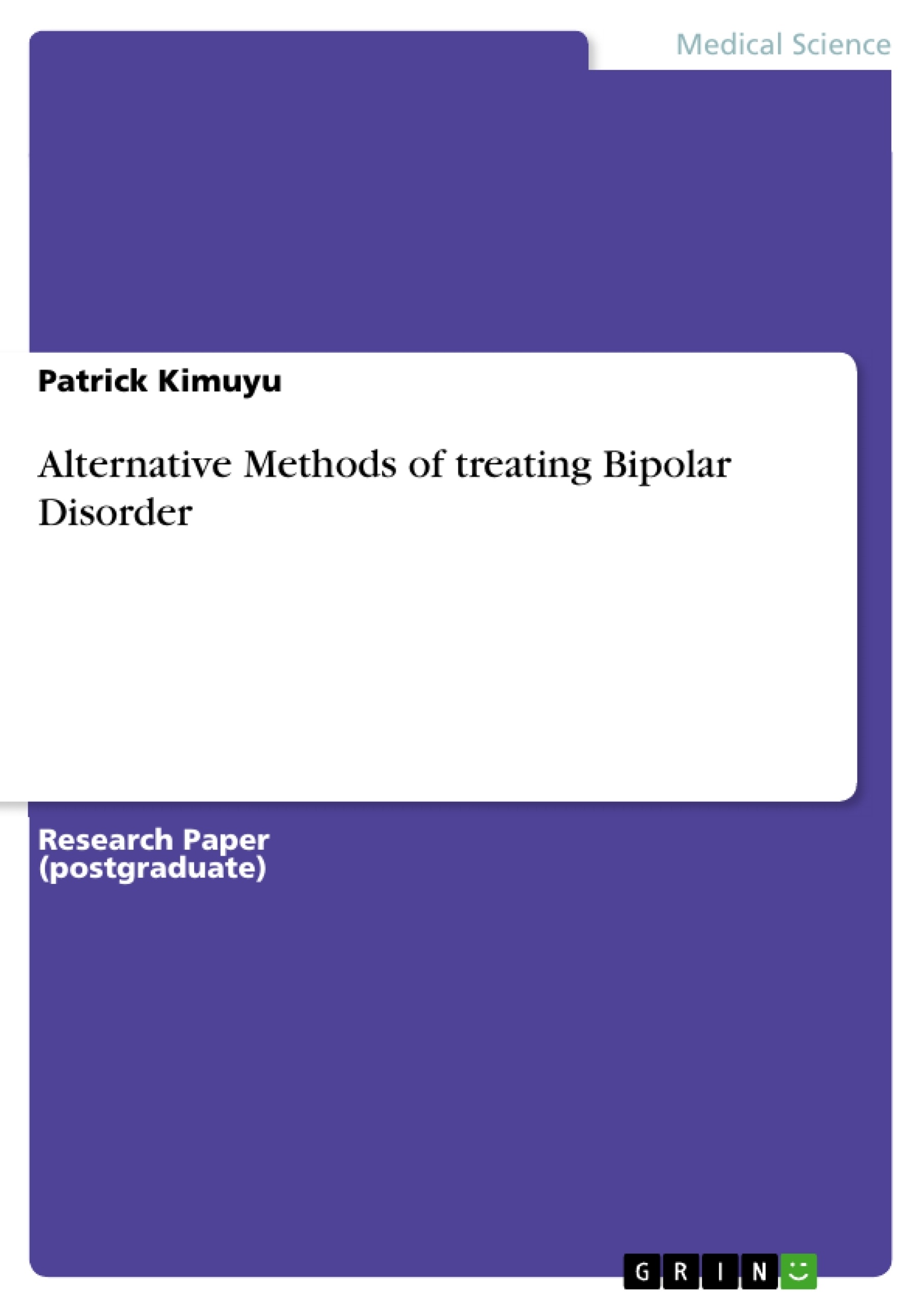Bipolar disorder has seemingly become one of the most challenging psychiatric illnesses in the U.S and the world at large. Statistics of this disorder were considered relatively insignificant in the past, but recent studies reveal that its prevalence has increased to an alarming level. Bipolar disorder is a psychiatric illness in which an individual experiences mania and depression episodes leading to social withdrawal, irritability and extreme sadness. In addition, bipolar mania is characterized with aggressiveness, sexual inappropriateness and exaggerated self-confidence. As such, its diagnosis and treatment encompasses immense complexity.
However, there are numerous alternatives of treating bipolar disorder, which are more efficient than medication. Therefore, this research paper will discuss alternative methods of dealing with bipolar disorder such as lifestyle changes, nutrition and herbal remedies. It will also provide an overview on medication, and its related side effects to create an understanding of the significance of using alternative treatment approaches.
Table of Contents
- Introduction
- Common Methods of Dealing with Bipolar Disorder
- Medications and their Effects
- Alternative Methods of Treating Bipolar Disorder
- Nutrition
- Amino Acids for Bipolar Disorder
- Minerals for Bipolar Disorder
- Vitamins for Bipolar Disorder
- Alcohol and Caffeine
- Effects of drug Abuse and Bipolar Disorder
- Exercise and Bipolar Disorder
- Yoga for Bipolar Disorder
- Sleep and Bipolar Disorder
- Cognitive-Behavioral Therapy
- Nutrition
- Conclusion
Objectives and Key Themes
This research paper aims to explore alternative methods of treating bipolar disorder, emphasizing the importance of lifestyle changes, nutrition, and herbal remedies. It also provides an overview of medication and its related side effects, highlighting the significance of alternative approaches.
- The prevalence and challenges associated with bipolar disorder.
- The limitations and side effects of conventional medication for bipolar disorder.
- Alternative treatment methods including nutrition, exercise, and cognitive-behavioral therapy.
- The potential benefits of integrating alternative approaches into bipolar disorder management.
- The importance of considering individual needs and preferences in treatment plans.
Chapter Summaries
The introduction provides a brief overview of bipolar disorder, highlighting its prevalence, challenges, and impact on individuals and society. It also underscores the need for effective treatment options beyond traditional medications.
The chapter on "Common Methods of Dealing with Bipolar Disorder" discusses the limitations of conventional treatment approaches, emphasizing the challenges of managing mood changes and the high relapse rates even with successful medication.
The chapter on "Medications and their Effects" delves into the use of mood stabilizers, antidepressants, and atypical antipsychotics, outlining their effectiveness and associated side effects. It also discusses the potential for misdiagnosis and missed diagnosis.
The chapter on "Alternative Methods of Treating Bipolar Disorder" focuses on lifestyle changes, nutrition, and herbal remedies as alternative approaches to managing bipolar disorder. It explores various dietary considerations, the role of exercise and yoga, and the importance of sleep and cognitive-behavioral therapy.
Keywords
The main keywords and focus topics include bipolar disorder, alternative treatments, lifestyle changes, nutrition, herbal remedies, medication, side effects, mood stabilizers, antidepressants, atypical antipsychotics, cognitive-behavioral therapy, sleep hygiene, exercise, yoga, and holistic approaches.
- Quote paper
- Patrick Kimuyu (Author), 2017, Alternative Methods of treating Bipolar Disorder, Munich, GRIN Verlag, https://www.grin.com/document/381246




